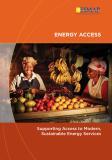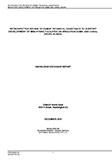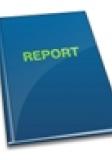Publications
Koffi Ekouevi and Voravate Tuntivate
Providing clean and efficient stoves and fuels to poor households in developing countries is a complex challenge, cutting across many disciplines, such as the environment, forestry, energy, health, and household economics, and linked to contextual social and cultural considerations.
The complexity and cross-sectoral nature of the challenge is also reflected in the mixed results that have been obtained in the field over the years. Lately, a new wave of mobilization around the importance of developing clean cooking solutions for poor households has emerged.
The drivers of this mobilization are multiple. There is a growing recognition that access to energy services is important to the achievement of the Millennium Development Goals (MDGs) and to poverty alleviation.
The negative health outcomes faced mostly by women and children in settings where households rely on solid fuels are serious public health concerns. Moreover, the recent discussions in the climate change community on black carbon, even if not conclusive, have drawn attention to the issues of clean cooking and cookstoves.
This mobilization has gained momentum and new opportunities—such as the Global Alliance for Clean Cookstoves, the new global partnership chaired by the United Nations Foundation—are emerging.
Against this background, this report on Household Energy Access for Cooking and Heating: Lessons Learned and the Way Forward is timely, since it provides a unique overview of the World Bank Experience and important lessons learned by other multilateral, bilateral, and government organizations. We expect that this report will provide insights for policy makers, stakeholders, and donors in meeting the challenge of providing clean cooking and heating solutions to poor households in developing countries.




